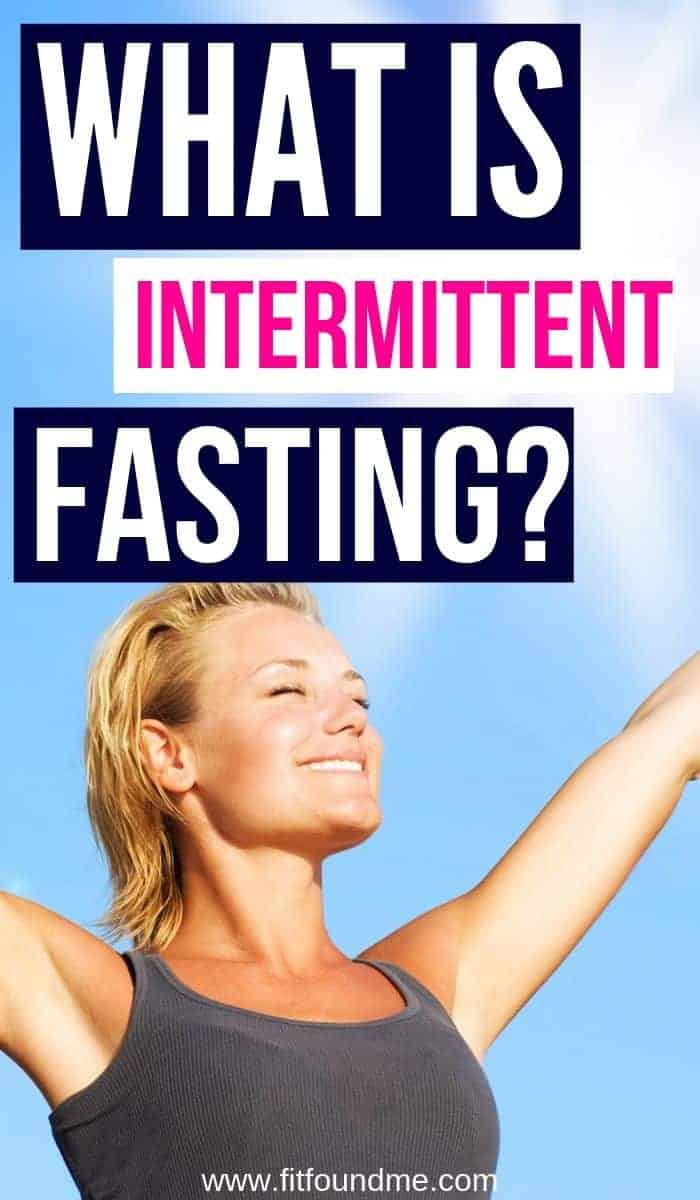Recently, the idea of Intermittent Fasting vs reduced calories has become a hot topic for weight loss. While it has been around for a while – I have been doing it for a little over a year now – it has really been taking off lately. So, what is Intermittent Fasting and how can you use it for successful weight loss?
IF has many health benefits including weight loss, balanced hormones, reduced glucose levels, and overall better health. Intermittent fasting is a way of life rather than a diet method. Will it work in your life? Chances are, you are already on the path to intermittent fasting.

What is Intermittent Fasting?
Did you know you already practice intermittent fasting every day?
When you aren’t eating, you are fasting. Intermittent fasting is the idea that you have all of your daily caloric intake during certain times of the day, then you don’t eat the rest of the time. For the health benefits of Intermittent fasting, you just need to extend your non-eating window a bit.
For me, this looks like eating all of my calories in five or six hours a day coupled with 18 hours of fasting. The classic intermittent fasting schedule is an 8 hour window for eating, with 16 hours of fasting.
For others, they may opt for the 5:2 approach – eating five days and restricting calories for the other two days. Some people even try the path of fasting every other day. With multiple approaches available, it’s important to find what works for your body and which plan you can stick with in your life.
Intermittent Fasting for Weight Loss
I started the 16:8 fasting just a little over a year ago. I was looking to target my stubborn fat areas. At the time, I was following the eating plan of eating every 2-3 hours, which can be a lot of food! I found myself feeling slightly full all of the time, and often it wasn’t easy to eat shortly after I woke up.
A 16:8 or even 18:6 fasting schedule is typically an ideal routine for me.
I stop eating around dinner time, which is normally around 6-7pm, skip breakfast and eat my first meal around lunchtime. I like to break my fast within an hour after my workout and so puts me eating somewhere between 10-1.
Studies have shown while in the fasting mode, energy burned by your body will eventually come from stored fat.
You will need to track your macros for weight loss during your eating window to avoid counteracting your efforts during fasting. Counting macros vs calories is crucial, be sure to read more on that topic here.
Balancing your macros during your eating window will balance hormones and in turn, you will lose more weight, have the energy needed and feel better overall.
You will begin to see the benefits of IF for weight loss after a week or two of sticking to your schedule.
What Happens to Your Body When You Fast
When you fast, your body still needs the energy to operate. Instead of relying on the calories you consume, your body uses the stored fat that you have and burns it for the energy that it needs. This is ideal because that is why your body stored the fat in the first place!
During a study of a 48 hour “starvation” period in humans, the American Physiological Society noted an increase of the resting metabolic rate, meaning when subjects were noted to undergo fasting, their metabolism (food and fat burning) worked harder when the subjects were not eating. Along with the right exercise plan, those stubborn fat areas become your body’s main energy target.
Intermittent Fasting for Type 2 Diabetes
Daily intermittent fasting can be very effective for weight loss, and has been noted to also be very effective for pre-diabetic people. It can help control your blood glucose levels and decrease your need for insulin.
Anyone with diabetes or that is pre-diabetic, should only use intermittent fasting with consultation and supervision.
How to Start IF
In my It’s My Time Now Health Transformation program, we ease into 16:8 Intermittent Fasting over a few days.
Some tips for you to get started are:
- Discuss IF with your doctor before you begin.
- Give your body a few days to adjust to the full fasting window.
- Drink plenty of water during your fasting window to avoid dehydration.
- Be flexible as needed. Some days your body may need a shorter fasting window.
- Continue to track macros to ensure you are fueling your body properly.
I hope you will enjoy IF as much as I do. There are many health benefits in addition to weight loss benefits IF can provide when balanced with healthy nutrition and a proper exercise program. Intermittent fasting combined with macros tracking is a much healthier way to lose weight as opposed to the old-style calorie restriction diet we were accustomed to years ago. Give it a try for a few weeks and you will see and feel the difference!
Have you tried IF before? What worked or didn’t work well for you?




Binance推荐
Saturday 13th of January 2024
I don't think the title of your article matches the content lol. Just kidding, mainly because I had some doubts after reading the article. https://www.binance.info/join?ref=S5H7X3LP